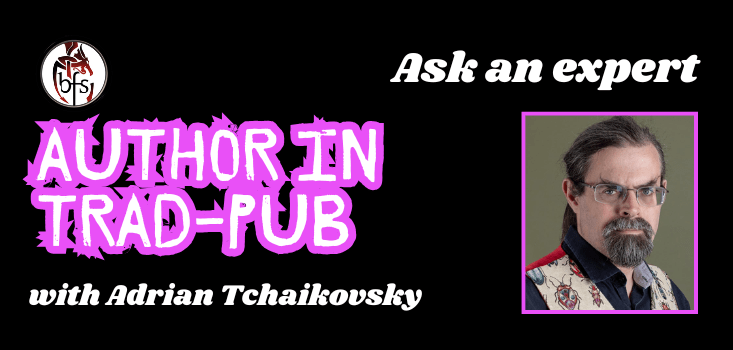In this monthly column, we pose your questions to an expert in a specific field of speculative fiction. This month, author Adrian Tchaikovsky tackles questions about being a traditionally-published author, as asked by BFS members in our dedicated Discord channel.
Note from the editor: Yes, you might notice that this month we’re not talking to Laura Bennett from the Liverpool Literary Agency. I promise it’s with a very good reason! These columns have proven so popular since we started them in January 2024 that we’ve decided to broaden the scope. Not everyone in our community is seeking an agent; our members cover the full depth and breadth of all things speculative fiction. So we’ve broadened things out and will be putting questions to a designated expert in a different field every month from now on. Keep an eye on our social media at the start of every month for news of who that month’s expert will be, and jump into the members Discord server to ask your questions.
This month: Being a traditionally-published author, with the critically acclaimed award-winning Adrian Tchaikovsky
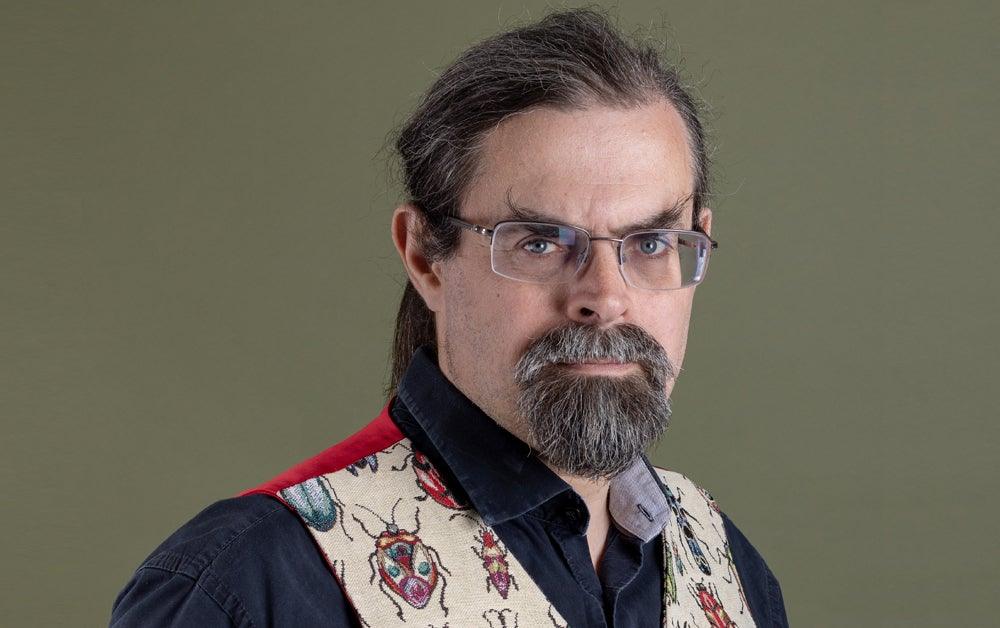
Name: Adrian Tchaikovsky
Website: adriantchaikovsky.com
Specialism: Author with a traditional publishing house
Location: England
Follow: BlueSky @aptshadow
Adrian Tchaikovsky was born in Woodhall Spa, Lincolnshire, has practised law, and now writes full time. He’s also studied stage-fighting, perpetrated amateur dramatics, and has a keen interest in entomology and table-top games.
Adrian is the author of the critically acclaimed Shadows of the Apt series, the Echoes of the Fall series and other novels, novellas and short stories. Children of Time won the prestigious Arthur C. Clarke Award, and Children of Ruin and Shards of Earth both won the British Science Fiction Award for Best Novel. The Tiger and the Wolf won the British Fantasy Award for Best Fantasy Novel, while And Put Away Childish Things won the BSFA Award for Best Shorter Fiction.
Having taken the traditional publication route, is there anything you regret or you think may have been easier/better with another route? (And conversely, anything you’re grateful to having gone down the traditional route for?)
AT: There wasn’t really another route at the time (except vanity publishing, which I came perilously close to, and don’t regret rejecting!). I am not sure I’d have done well if I’d had modern self-pub routes open to me as I am very much in need of an editor, but back then absolutely didn’t think that I was. Hence I’d likely have rushed out messy drafts that really needed more work. Also, everything I’ve heard about the self-pub route requires a writer to also be an enormously active publicist for their own work, and that is something I am absolutely no good at.
How much leeway do you get in terms of deadlines?
AT: Thus far, touch wood, I’ve not had to test it. I know that publishers tend to built in a certain amount of flex into most deadlines. I have to date delivered early, but the amount of earliness has been shrinking over time so that right now I’m actually under the deadline hammer, and what I need to write this year, and in what order, is quite strict. I could probably wrangle extensions but I’d not feel good about it.
Dear Adrian: To which demonic entity did you sign away your soul to secure a publication deal, and what have the repercussions been for signing that compact?
AT: No idea but I’m sure it’ll collect eventually.
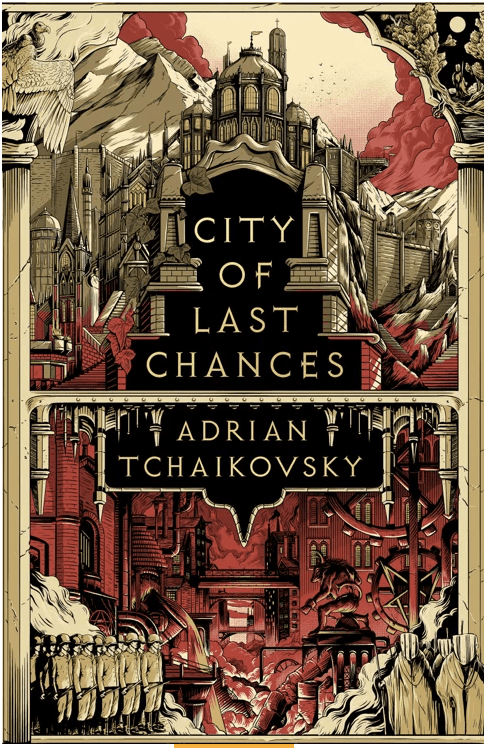
If you were seeking publication for the first time now and thinking about how you wanted your career to look, would you still go down the traditional route?
AT: So mostly see the answer to Q1. I suspect that, given it took me 15 years to get into print, I would absolutely have gone down the self pub route. I’m not sure that would have worked well, though, because lord knows I really do need an editor.
As an already-published author, what are you expected to provide your agent about your next book? Just a synopsis, or also things like character details or anything like that? Also, do you decide what to work on next completely by yourself or is your agent involved in that process?
AT: So these days my agents tend to get a few paragraphs. Sometimes I’ll send a raft of ideas over and we’ll chat about what might work for which market. Publishers often want a more detailed idea so they can start looking at marketing. It generally comes down to me when I’m writing regular books, but these days I’m also doing a certain amount of commissioned specific writing, which obviously comes with a set of built-in prescriptions about what it needs to be. I think I’m at a point in time where my agent is confident that anything I deliver is something they can sell, but of course that just sets up some future point where I dump something very left-field on them and they come back and tell me it’s unpublishable…
What’s it like handling multiple series at once from the publishing perspective? Are the book deals for Tchaikovsky books in general or on a per-series basis?
(Pictured below: Adrian’s Shadows of the Apt series)
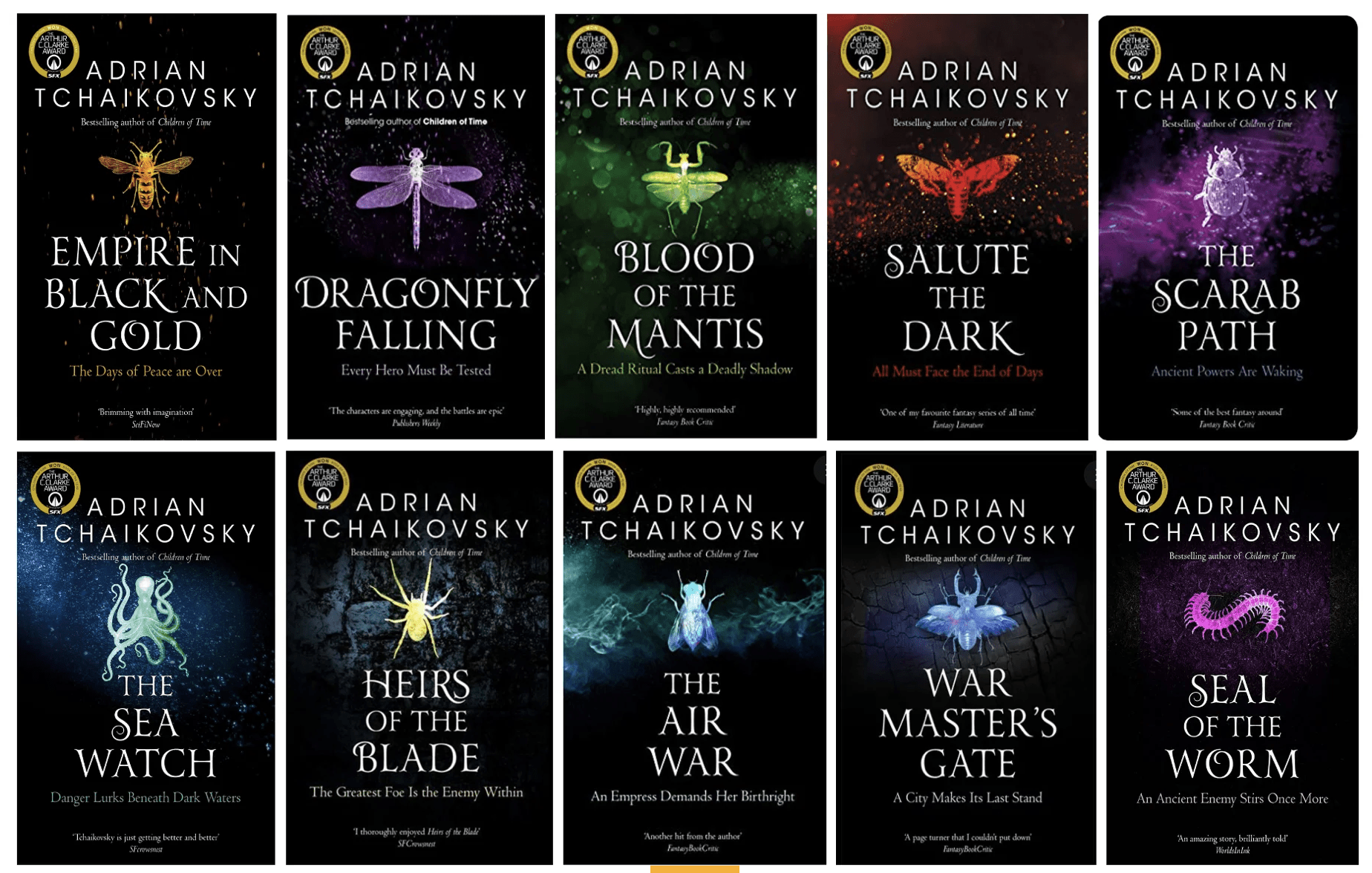
AT: Honestly I’m only ever working on one thing at once, and that takes up the foreground of my mind. Also, many of my “series†are more settings that I keep adding books to. I’ve only purpose-written a real series, with an actual plot arc etc., three times, I think. As far as the contract side of things goes, the deals used to be series specific, but these days tend to fragment a bit, so I might have a contract that covers “another book in this series, another book in that series, and a standalone.â€Â
Trad publishing is evolving to keep up with current trends. From your experience in the industry, do you think it can change quickly enough to maintain its current status, and how do you think this will affect authors?
AT: Honestly I’m not the person to ask as the actual machinery of publishing goes on hidden from writers. Trad publishing can be a bit monolithic, but at the same time I think the pace of adaptation now is much quicker than it was when I was first in print. I think e-markets, self publishing, subscription models and the like have all prompted a more open mind amongst traditional publishers as to how the market can work. Obviously, being rather invested in its success, I hope the industry is able to roll with the punches, but it’s a hope rather than foreknowledge.
What would be your top tips for a newbie author looking to go down the traditional publishing route?
AT: So my standard spiel on this is; there are two elements you need, one of which is skill and one of which is luck. Speaking as someone who got lucky, luck remains a major element. You need your book to fall within the boundaries of what that particular reader thinks they can pitch to the sales team or marketing meeting or whatever, based on their best projections of next year’s market or the year’s after that. I usually say that you need a perfect storm where they have a gap in the list to fill that is the same shape as your book and also they’ve had a really good day and a satisfying lunch and are feeling well disposed towards creation, and then your book is the next thing they look at. None of which you can control, hence: luck. However, you also need whatever you send them to be as good as it possibly can so that, should this conjunction of events occur, you’re in a position to take advantage of it. That’s the bit you can control. Get some eyes on it, get an idea of how it fits into the general genre landscape, make sure you’re sending things to a publisher who deals with that, make sure your sample chapters/first chapters are going to communicate what the good stuff in the book is. None of this is particularly helpful, unfortunately.
The other thing is: it took me 15 years. From this you may conclude (1) it takes a long time, but also (2) it probably didn’t need to. If you can take constructive criticism of your work, from writers’ groups, freelance editors and book doctors, that sort of thing, probably you can shave some time off (I couldn’t. I was convinced my early writing was gold dust. It wasn’t). If you are good at social networking and can go chat to editors, agents and other writers at conventions without making yourself a nuisance (I couldn’t have done that either. I’d have been that guy and every editor would have bolted their drink and fled the room when I arrived clutching my dogeared manuscript) then that can also help (plus many conventions, especially Fantasycon, have a lot of panel content aimed at new writers),
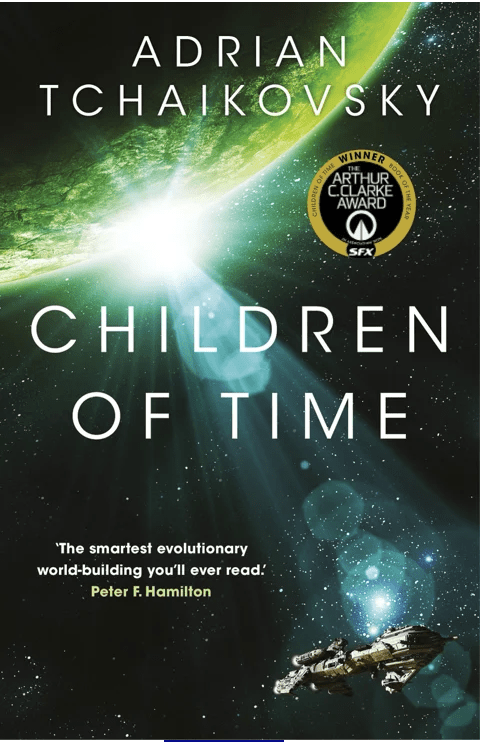
Is there a mistake you see commonly being made by newbie authors who are seeking to be traditionally published / get a deal with the Big 5? And equally, is there something you see very few of them doing that you think more of them should?
AT: I don’t get to see what new writers generally do, that turns out to be a mistake, for obvious reasons! I suspect a lot of writers are forcing themselves to chase the current hotness in terms of subgenre, and my personal feeling (and just that) is that, unless it’s genuinely your thing, that’s a mistake. A book taken on now won’t see print for 1-2 years, by which time the market may have moved on. Also, that’s probably the thing that editors are reading hundreds of, and so your offering likely will get lost in the horde. Otoh there’s nothing wrong with knowing where within the genre your book will fit, and knowing the major works of the last few years that your putative readers will be familiar with, to avoid repetition and to riff off the established tropes. “The same but different†isn’t a bad place to be (it was my pitch for Shadows of the Apt, bouncing off the Erikson/Martin epic fantasy boom) but you do need that difference. You need a reason for the reader to get excited about your book, and not the 99 others aiming at that slot.
How long were you on submission before you got representation for your first work? And how long was it until you saw it on shelves?
AT: Fifteen years. Fifteen whole years. Almost went mad, honestly. In a very real sense, it was all hitting my mental health quite badly towards the end. After representation it was around 18 months before Empire in Black and Gold hit the shelves, which is relatively quick.
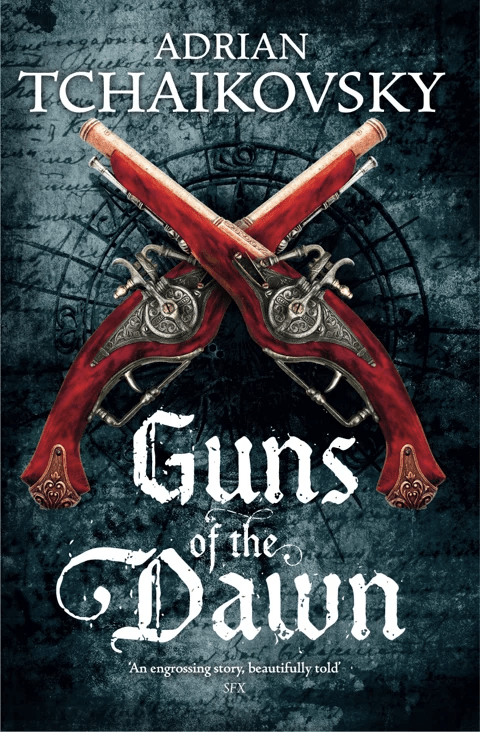
Do you pay much attention to trends in traditional publishing, or do you just do your own thing? I have a dark, futuristic fantasy series and struggling to get interest.
AT: Honestly not so much, but I say that from a very privileged position, having a reliable readership who want the sort of stuff I prefer to write. Admittedly what I want to write and what publishers want me to write has a lot of overlap but I’m sure I’ll come up with something they’ll hate at some point, and then I’ll realise I should have paid more attention.
That the publishing industry has genres that are up and genres that are down has been a thing for many decades – look at McCaffrey reskinning her Pern books as SF when nobody would take them as straight fantasy. If the genre that speaks to you is on the downswing it’s a definite impediment, but (a) everything always comes back, and (b) nothing is ever entirely gone.Â
In your early days, how did you juggle working full-time with writing your first books? When did you know it was time to quit and focus on the fiction full-time?
AT: When I had a full time day job I wrote late evening, or sometimes in my lunch hours. I started scaling down to part time some time after Children of Time started doing well, and thankfully had an employer happy to indulge me. I wrote just about every day, even if it wasn’t very much. I was absolutely ruthless with the time, because that was how I got anything done. It’s very easy for writing time to look like free time to someone making demands on you! As far as knowing when to go full time, it was 100% an economic decision. My wife and I looked at the bank balance and we had enough there to stand us two years of bills if I never earned another penny from writing. Which would be enough time to hopefully get a new source of gainful employment. It was as simple and brutal as that.
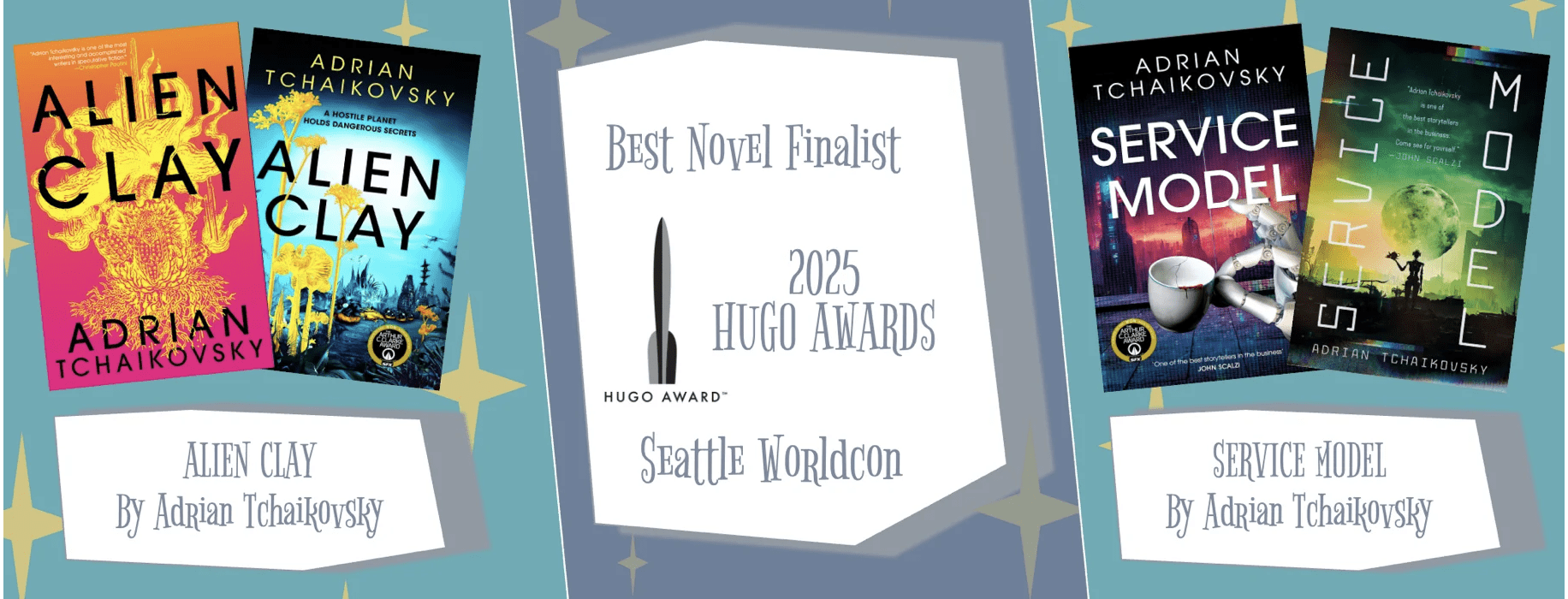
Read previous columns
Ask an expert
- March 2025: SFFH artwork with Jenni Coutts
Ask an agent, with Laura Bennett:

